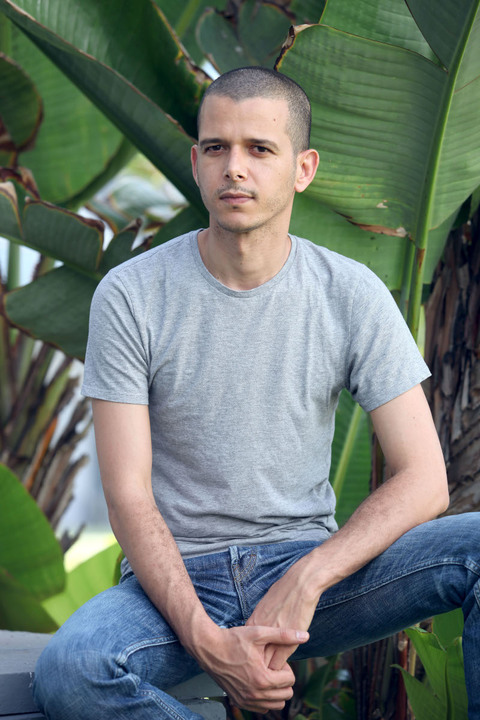Books and publications
Index / Activities / Books and publications / Interview with Abdellah Taïa
Interview with Abdellah Taïa
June 10, 2020The interviews will be broadcast on Wednesday, June 10 at 6:00 p.m.
ONLINE
Casa Árabe channels on social media. #QuédateenCasa #JustStayHome
The interviews will be broadcast on Wednesday, June 10 at 6:00 p.m.
In English, with consecutive translation into Spanish
Coinciding with the beginning of sales of his latest novel, “Slow
Life”at bookstores (published as “La vida lenta” in Spanish by Cabaret
Voltaire), we will be speaking with this Moroccan writer. You can watch
the interview on our social media channels.
In English with a consecutive summary in Spanish, we will be showing the interview on Casa Árabe’s social media channels as of 6:00 p.m.
In France, after the terrorist attacks in 2015, Mounir, a 40-year-old gay Parisian of Moroccan origin, is living through precarious times. He just moved to an apartment on Rue de Turenne, in one of the capital city’s bourgeois neighborhoods. His octogenarian neighbor’s name is Madame Marty, a woman who just barely manages to get by in a tiny attic apartment under the roof. The friendship between these two members of society on the fringes of the Republic grows gradually, until one day it turns into a nightmare. They have one confrontation after another. Eventually, Madame Marty is beside herself and calls the police so they will come arrest Mounir.
Abdellah Taïa (Salé, Morocco, 1973). A Moroccan French-language writer, after completing his studies in Literature at Mohammed V University in Rabat, he took up residence in Paris in 1998, where he began his literary career. Up to now, he has had nine novels published, in addition to other texts: Mon Maroc (My Morocco, published as Mi Marruecos in Spanish by Cabaret Voltaire, 2009, winner of the “Cálamo” Award), Le Rouge du tarbouche (The Red of the Fez), Salvation Army, An Arab Melancholia, The King’s Day, Infidels (published as Infieles in Spanish by Cabaret Voltaire, 2014), Un pays pour mourir, Celui qui est digne d’être aimé (also published in Spanish, as El que es digno de ser amado, by Cabaret Voltaire, 2018) and Slow Life (published in Spanish as La vida lenta). Also paying close attention to current events in Morocco and the Arab world, he regularly contributes to the French and international press through opinion articles. In 2012, he directed his first feature film, L’armée du salut (Salvation Army) based on the novel with the same name. He currently resides in Paris.
In France, after the terrorist attacks in 2015, Mounir, a 40-year-old gay Parisian of Moroccan origin, is living through precarious times. He just moved to an apartment on Rue de Turenne, in one of the capital city’s bourgeois neighborhoods. His octogenarian neighbor’s name is Madame Marty, a woman who just barely manages to get by in a tiny attic apartment under the roof. The friendship between these two members of society on the fringes of the Republic grows gradually, until one day it turns into a nightmare. They have one confrontation after another. Eventually, Madame Marty is beside herself and calls the police so they will come arrest Mounir.
Abdellah Taïa (Salé, Morocco, 1973). A Moroccan French-language writer, after completing his studies in Literature at Mohammed V University in Rabat, he took up residence in Paris in 1998, where he began his literary career. Up to now, he has had nine novels published, in addition to other texts: Mon Maroc (My Morocco, published as Mi Marruecos in Spanish by Cabaret Voltaire, 2009, winner of the “Cálamo” Award), Le Rouge du tarbouche (The Red of the Fez), Salvation Army, An Arab Melancholia, The King’s Day, Infidels (published as Infieles in Spanish by Cabaret Voltaire, 2014), Un pays pour mourir, Celui qui est digne d’être aimé (also published in Spanish, as El que es digno de ser amado, by Cabaret Voltaire, 2018) and Slow Life (published in Spanish as La vida lenta). Also paying close attention to current events in Morocco and the Arab world, he regularly contributes to the French and international press through opinion articles. In 2012, he directed his first feature film, L’armée du salut (Salvation Army) based on the novel with the same name. He currently resides in Paris.

